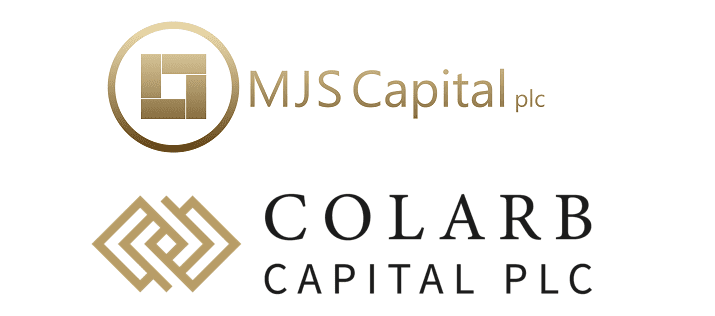Tempus Magazine was a luxury lifestyle magazine first published in 2012. If you liked yachts, luxury holidays and pictures of watches (lots of pictures of watches), Tempus was the magazine for you.
In March 2017 Tempus was effectively acquired by the unregulated minibond issuer MJS Capital, and MJS CEO Shaun Prince became its Chief Executive Officer.
Update 6.12.18: Since Issue 47 (April 2017), every issue of Tempus has included the text “(C) Tempus Media Limited” on its contents page. However, the director of Tempus Media Limited (a former MJS Capital director) has contacted us to say that in actual fact, “Tempus Media Limited does not run and never has run Tempus Magazine.”
The company which actually runs Tempus Magazine is, according to the director of Tempus Media Limited, Tempus Media (London) Limited. Tempus Media (London) currently has one director, MJS Capital CEO Shaun Prince, who took over in October 2018 after the previous directors left. The company has been owned by Shaun Prince’s girlfriend since September 2018.
Still with us? Good. What is not in dispute is that Tempus Magazine was controlled by MJS Capital since a “sponsorship” arrangement was announced in a November 2016. This arrangement was referred to by Tempus as “sponsorship”, but having the same CEO as your “sponsor”, substantial influence on editorial output (see below), and having an MJS Capital director eventually appointed as director of the publishing company goes well beyond sponsorship.
I believe Tempus Magazine is now defunct, originally for three reasons: Tempus’ website (tempusmagazine.co.uk) is now down and has been for some days; the magazine has not published an issue for three months, despite being two-monthly; and the third was the recent application to strike Tempus Media (not London) Limited off the Companies House register. Apparently the third event actually has nothing to do with the magazine ceasing to publish, but the first two seem grounds enough to believe that Tempus is no more. It is also noticeable that a month after the last issue was published, Tempus Media (London) Limited’s two directors both left, and were replaced by Prince.
With Tempus Magazine apparently no more, let’s take a moment to reminisce about its history under its new owners.
November 2016: Issue 42 announces MJS Capital’s “sponsorship” of Tempus magazine.
In an interview, former MJS Capital director Martin Westney claims that MJS Capital’s bonds are “very low risk”.
Tempus: So there must be an element of risk somewhere?
Westney: Our investment products carry a very low risk. Not only are our bonds insured but the method by which we create capital growth is that of arbitrage.

March 2017: Issue 46 is the first issue to name Shaun Prince as the new CEO of Tempus Magazine. Prince even gets his hands dirty – and perhaps frost-bitten – by writing at least a couple of articles. In one he takes a luxury trip to Antarctica, in another he reviews a luxury hotel in Berkshire. (There may be more articles by Prince, but I didn’t read the issue cover-to-cover, as there’s only so many pictures of watches I can handle.)
An advert for MJS Capital stretching from page 106 to 108 claims that its bonds are “low risk, high return”.
September 2017: Tempus’ website publishes an article by Lucy Allen headlined “The simplicity of arbitrage: Investors bruised by recession could find these investments to be a safe haven”.
“These investments”, of course, refers to MJS Capital’s bonds.
MJS Capital is one such company setting new standards in security structuring and taking advantage of pure arbitrage. This means that it’s able to offer its clients an above average return. The firm is aligned with multiple security and commodity traders who work within the banking sector. Using large credit lines, MJS generates profits by pre-selling the assets that it purchases.
It’s a low risk strategy that’s been very well received in the square mile of London due to its simplicity, and it’s one that potential investors should explore for themselves. The rewards are there for those willing to approach arbitrage with an open mind.
Nowhere in the article is there an “advertorial” declaration or disclosure of MJS Capital’s effective ownership of Tempus magazine. The article goes well beyond merely discussing the existence of MJS Capital’s investments, and clearly induces investors to invest, making it a financial promotion. Neither Tempus Magazine nor MJS Capital has ever been authorised to issue financial promotions by the FCA.
Note that I am not just picking on Tempus with the benefit of hindsight. Describing MJS Capital’s bonds as “low risk” or a “safe haven” was blatantly misleading with the benefit of plain old sight. “Low risk” is universally recognised to mean an FSCS-protected cash account, diversified regulated stockmarket funds are considered “medium risk” to “high risk” depending on their volatility, and unregulated corporate loan notes with a material risk of total loss are quite clearly well beyond high risk.
October 2017: Issue 53 is devoted to “The disruptors of the new wealth landscape”. The cover image is a colourful photo of London’s skyline which some MJS Capital investors will recognise from MJS investment literature.
One of the first articles is devoted to Shaun Prince’s attempt to launch a fund which would combine investment with access to private jets, yachts and other luxury vehicles. The fund would invest collectively in luxury vehicles and would allow investors to rent them for a period. Timeshare for private jets, essentially.
Tempus: What inspired you to launch the MJS Capital luxury fund?
Shaun Prince: MJS Capital has been quietly generating good profits for nearly three years,
[Brev: So quietly its own accountants didn’t notice. MJS Capital’s September 2017 accounts show a net loss of £800,000 on turnover of £6.5 million from April 2016 to September 2017, and a loss of £75,200 from incorporation in March 2015 to March 2016.]
…so after lots of hard work I felt it was time to enjoy some well-earned rest. My initial idea was to buy a yacht, but the thought of buying one outright seemed too much, especially as they are such an expense to run full-time. My second option was to charter but I couldn’t bring myself to pay the inflated chartering costs. This is where I spotted an opportunity to combine my finance background with luxury living and create a new solution for people facing a similar dilemma. This is how the ‘luxury fund’ was born.
Prince had his eye on the yacht Sarastar, which is still up for sale for those with 50 million euros burning a hole in their pocket. Prince has recently claimed to the Evening Standard that MJS Capital has raised £20 million from investors. His aim to raise enough money from investors in the new ‘luxury fund’ to buy Sarastar among other yachts, plus 3-5 private jets, plus a pool of supercars valued at over £200,000 a piece, therefore seems highly ambitious.
It’s very simple to understand. Funds raised into the fund are split 50/50 – 50% is used as a deposit to purchase the luxury assets and the remaining 50% is taken out in the form of a loan. This leaves us with 50% to be invested into one of our arbitrage trades.
…During the period of investment they can use the fund’s luxury items on a points-based system.
Despite Prince’s claim that investor demand for the fund was “staggering” and that the launch of the fund had been brought forward as a result, as far as I can tell the fund didn’t take off. Interested investors are directed to the main mjs.capital website (now replaced by colarb.capital), but there has been no sign of the luxury fund on either domain for a while.
This issue also features a story which “lifts the rope” on MJS Capital’s private dinner at the Tower of London.
The evening began with a champagne reception inside the Fusiliers Museum, followed by a three-course dinner during which time-honoured traditions such as the passing of the port and toasts to the Queen were carried out.

Among the tasteful attractions of the evening was a display of artworks by Bran Symondson, including a gold plated AK47.
Those with a ‘golden ticket’ were chauffeur driven through London to the Wellesley, Knightbridge, where the cigar terrace was turned into an opulent setting for after dinner digestifs. Cigar and cognac connoisseur Giuseppe Ruo hosted a masterclass on pairings that guests could sample – Hennessy XO Cognac paired with Dipolatico Cigar Excelencia and Rum Zacapa Xo paired with San Louis del Rey Marquez – before mingling into the small hours.
September 2018: What appears to be Tempus’ final issue, #59, is published – although there is no mention of the magazine’s closing in the editorial. The cover proclaims it to be a “Wealth Edition”.
Despite its ongoing banking issues, MJS runs another double-page advert in the magazine, featuring the familiar sunset shot of London but no text.
An article on alternative investments suggests six novel asset classes for investors to consider: cryptocurrency, cannabis, collectibles, classic cars, film/television and “supertoys” (supercars and luxury yachts). The article is contributed by Graham Rowan of Elite Investor Club.
Under “supertoys”, the writer plugs a company launching a “bond” which buys a portfolio of supercars, luxury yachts and private jets. The bond uses part of investors’ money as a deposit and takes out a loan to cover the rest of the funds needed. The remainder is invested “in a specialised bond that produces strong returns from arbitrage in the foreign exchange markets”. Investors are awarded points which they can use to trade for time with their chosen supertoy.
Sounds rather familiar, doesn’t it? Yet this bond is apparently nothing to do with MJS Capital; the company offering the bond is P1 International. But there are remarkable similarities not just in the general concept, but the structure of using part of investors’ funds as a deposit and taking out a loan to buy the “supertoys”, investing the rest in arbitrage to pay the loan interest, and giving points to investors to allow them to borrow the fund’s yachts / cars / planes.
P1 International is a car club which has been around for quite a while. It was originally founded in 2000 by Formula 1 Champion Damon Hill, Michael Breen and a number of other directors as P1 International Limited. Damon Hill was bought out by Breen in 2006.
In 2009 P1 International Limited went bust (no shame in that, all the cool kids in the alternative assets world were going bust in 2009). It was reincarnated by Breen as P1 World LLP, which bought the assets of P1 International Limited from the administrators, sans £1.5 million worth of cars which were mortgaged to Lombard North Capital and Barclays Asset Finance.
Has P1 International nicked Shaun Prince’s idea? Probably not, as it seems unlikely that Tempus – still owned by MJS Capital and helmed by Shaun Prince – would promote P1 International if they hadn’t picked up the baton with Prince’s blessing.
In any case, despite the Tempus article directing readers to p1international.com for more information, I was unable to find anything about a bond issue.
End of the line
Is this the end of Tempus Magazine’s six year history? The magazine has changed hands more than once in the past, so it wouldn’t be a surprise if it eventually resurfaced under new ownership. Judging by the number of luxury brands who advertise in it, there is clearly value in its readership.
Hopefully if there is a new owner, they will be more cautious about their choice of investments to promote.
All back issues of Tempus can be read for free at https://issuu.com/tempusmagazine/ – for the moment.


Great article
Thanks Icmck!
Yes, great work Brev. To a novice it is all very confusing…..MJS promoting itself on a ticket of being unwilling or unable to pay its investors back!!! Wow! missed that in the T’s and C’s.
Do you know of anyone who has received any money from them recently?
It’s best I don’t answer that question because if I didn’t know of anyone, it wouldn’t mean nobody has. Someone who receives their interest and capital when due isn’t going to Google for websites about their investment and leave comments or email them just to say that they got paid as expected. So I am not in a position to comment.
I do know of people who initially complained about not receiving their capital back on time, and later confirmed that they were belatedly paid back in full. That was some months ago however.
What I don’t fully understand is this: MJS Capital has consistently blamed the failure to pay investors on time on “banking issues”, more specifically “freezing of accounts or difficulties in opening accounts”, as disclosed in its last accounts. However if this is the case, I don’t understand how it has managed to pay some investors and not others. Either it has banking channels open or it doesn’t.
This is an investment company handling millions of pounds for investors, this isn’t me doing online banking where I can only shift £20,000 a day before I have to go into a branch with ID.
At the end of the day, to the individual investor it is irrelevant whether other investors have been paid back or not. If they have a matured bond then it doesn’t matter whether MJS Capital has paid every single other investor back on time or hasn’t made a single payment or somewhere in between, either way they are owed their money.
Thanks for this Brev. Good findings
From what I have heard MJS did have banking issues, this is common in the bond sector atm, but to pay some investors may have been possible from profits being made and sent via the trader to a payment service provider, but they can not access a few pools of cash set aside to do this, so the Avenue of profits is the only method to pay anyone at this time, So I’ve been told.
I also heard that Tempus was costing too much money so has been placed on hold until the company rights any financial difficulties while funds are slowly coming back.
I feel Mr Prince is very open and honest about the company dealings and this could be a downfall as most companies would just promote all is fine and leave clients with zero response, I also feel he has the investors as the main priority, I could be wrong but only time will tell.
One thing I would say however is that if his name is in the product and his openly talking that’s probably a good thing.
I can confirm mjs did help fund Tempus and used this as a form or marketing and are also in a relationship with P1 which gives me confidence in mjs, if such companies will work with them.
He may not be the most corporate or savvy but I feel there is an underline honesty in his efforts here, however miss placed his judgement may be at times
(Former members of staff.)